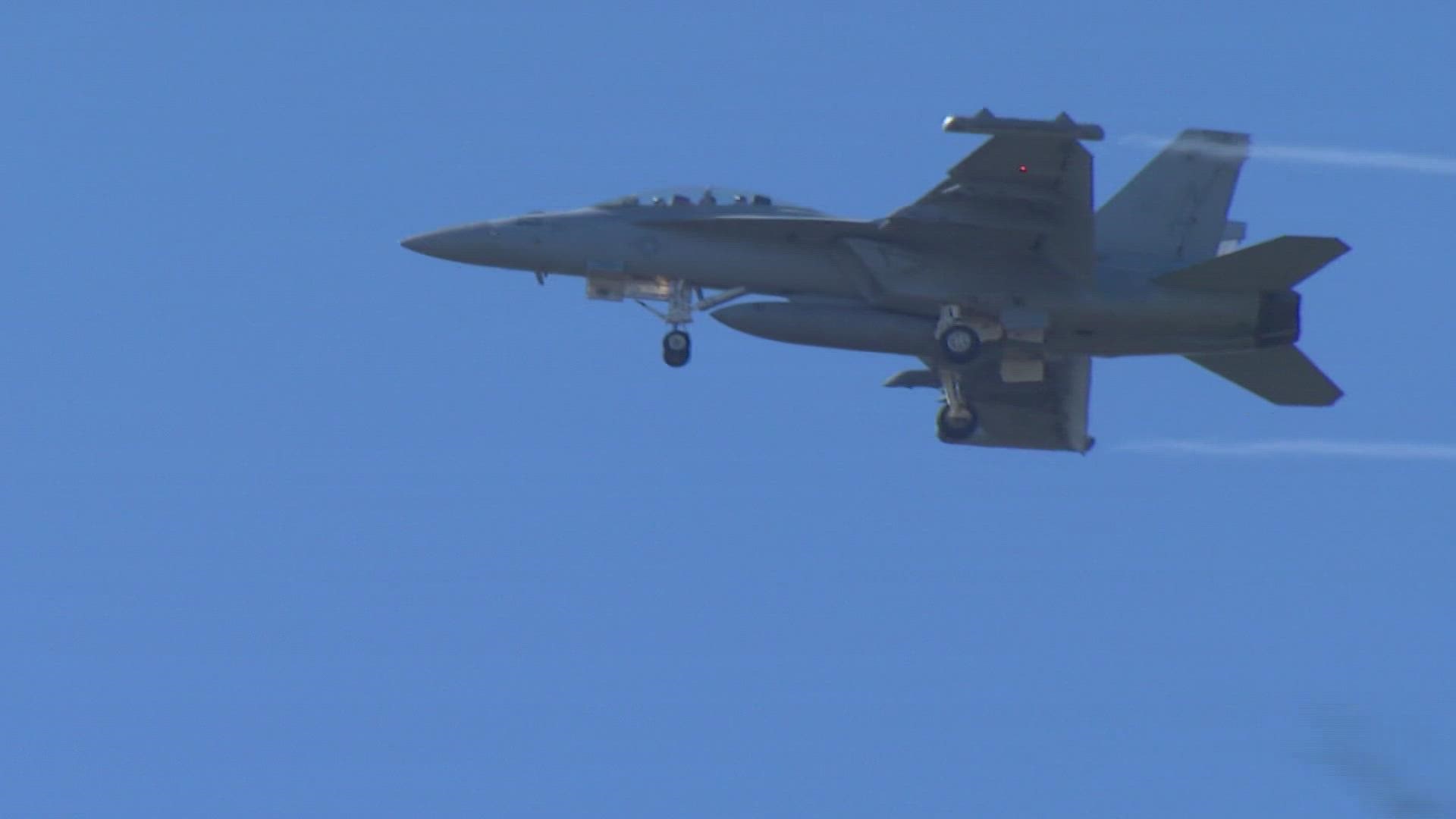WHIDBEY ISLAND STATION, Wash. — A federal judge ruled Tuesday that the U.S. Navy failed to consider the impacts of expanding its Growler jet program and violated the National Environmental Policy Act by adding additional fleets along Whidbey Island.
Growlers are aircraft that conduct electronic warfare and fly low in order to jam enemy communications.
A release from the Attorney General's Office said the federal court ruled in favor of the state’s claims that the Navy failed to consider the impacts of the noisy jets on local classrooms, and on various bird species, including tufted puffins, which the state lists as endangered.
The court also ruled in favor of two claims in a related lawsuit filed by Citizens of Ebey’s Reserve. The claims indicated the Navy did not properly consider other locations for the Growler expansion, nor did it properly consider the greenhouse gas impacts of Growler fuel use.
In 2019, the Navy added 36 of its electronic warfare aircraft to a Naval Air Station in Whidbey Island air station, bringing the total to 118.
State Attorney General Bob Ferguson sued the Navy in July 2019 over its plans to expand in Whidbey Island, which brought flight operations to more than 110,000 per year.
“The Navy has an important job,” Ferguson said. “But that does not relieve the federal government of its obligation to follow the law and take a hard look at the public health and environmental impacts of its programs. Today the judge ruled that the Navy fell short of its obligation.”
That growth, compounded by the lower, distinctive rumble from the more powerful jet that replaced the aging Prowler, led to complaints from some living nearby, and other lawsuits from residents and the state of Washington.
A study published in 2020 found that 88% of noise on Whidbey Island came from military flights, and the majority of those flights were identified as Growlers. Some flights were captured at 82 decibels, near the threshold for hearing protection.
Another study published in the Journal of Marine Science and Engineering found a hydrophone placed near a runway captured noise at levels known to alter the behavior of wildlife at 100 feet deep. That raises concerns for fish and marine mammals, the study author said, including the endangered Southern Resident orcas. Researchers called for further study of the impacts on wildlife.
The Navy said it does not dispute the data gathered but takes issue with some of the conclusions. They believe noise data from so close to a runway doesn’t reflect the majority of Growler operations and want more evidence that aircraft noise can impact wildlife as suggested.
In 2020, Captain Matt Arny, former commanding officer of NAS Whidbey Island, said the Navy was hoping to mitigate some of the acoustic impacts. He pointed to a recent change to the “canned” default flight plan for Growlers, which was imposed because of Federal Aviation Administration needs, but could be potentially helpful on the noise issue.
After the latest court ruling, the Attorney General's Office said the state and other parties now have 30 days to either agree on a remedy or a briefing schedule on a remedy.
The latest ruling adopted the recommendation of a U.S. federal magistrate, who issued a report and recommendation in December 2021 in favor of Ferguson’s lawsuit.
“Here, despite a gargantuan administrative record, covering nearly 200,000 pages of studies, reports, comments, and the like, the Navy selected methods of evaluating the data that supported its goal of increasing Growler operations,” Chief Magistrate Judge J. Richard Creatura wrote in his 38-page recommendation. “The Navy did this at the expense of the public and the environment, turning a blind eye to data that would not support this intended result."

